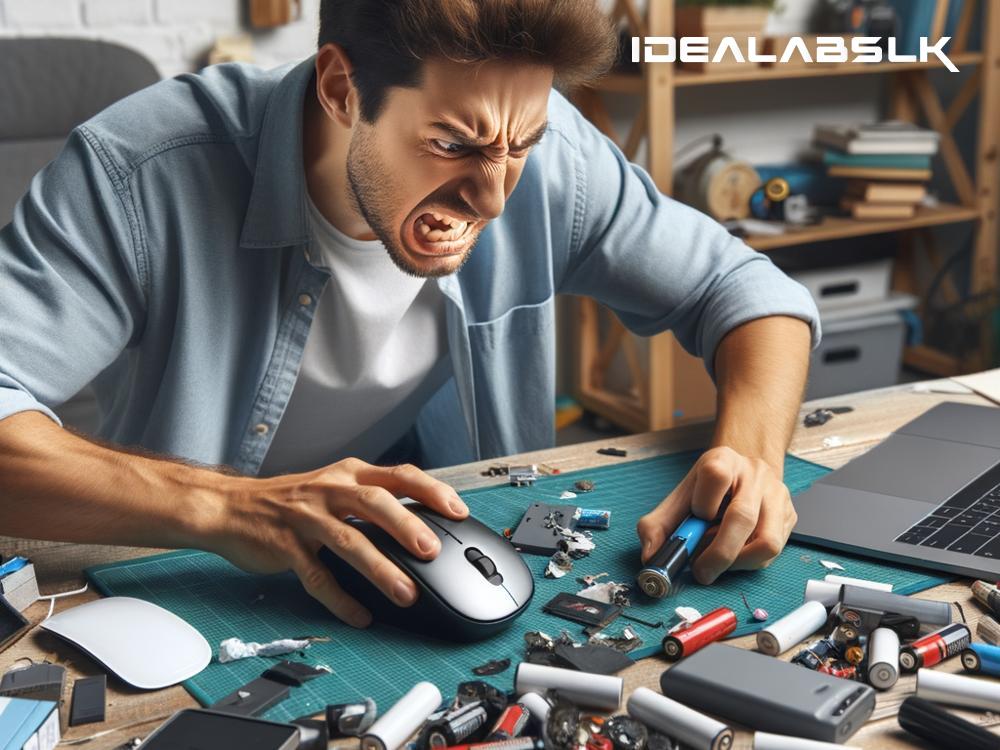Why Your Bluetooth Mouse Drains Battery Quickly: Unveiling the Mystery
Have you ever found yourself in the middle of an important task, only to have your Bluetooth mouse give up on you because the battery has died unexpectedly? It's a common issue and can be really frustrating. You're not alone, and there could be several reasons why this is happening. Let's dive deep into the reasons behind the rapid battery drain of your Bluetooth mouse and how you can address them.
1. Constant Connectivity: Play it Smart!
One of the primary reasons your Bluetooth mouse drains battery quickly is due to its constant search for a connection, even when you're not using it. Unlike a traditional wired mouse, a Bluetooth mouse always tries to maintain a connection with your computer, causing it to consume energy continuously. However, don't worry! Most Bluetooth mice come with an automatic sleep mode to save energy. If yours does not seem to sleep or the battery still drains quickly, consider manually switching it off when not in use. This simple habit can significantly extend battery life.
2. High DPI Settings: The Need for Speed (and Energy)
DPI (Dots Per Inch) determines how fast your mouse pointer moves across the screen. A higher DPI means the mouse moves faster but at the cost of increased energy consumption. Gamers or users who prefer a speedy cursor might experience quicker battery drain due to higher DPI settings. The solution? Adjust the DPI settings according to your actual needs. Opt for a lower DPI when performing regular tasks and only switch to higher settings when necessary.
3. Intense Usage: Every Click Counts
The more you use your mouse, the faster the battery will deplete - it's that simple. If you notice the battery running out quickly, reflect on your usage patterns. Are you a heavy user who spends hours on graphic design or gaming? Or perhaps your job involves constant clicking and scrolling? If so, consider investing in rechargeable batteries or a mouse with superior battery life to meet your demands.
4. Poor Quality Batteries: Penny Wise, Pound Foolish
Not all batteries are created equal. Using low-quality batteries can result in poor performance and quicker drainage. Cheaper batteries might save you money upfront, but the frequent replacements will cost you more in the long run, not to mention the inconvenience. Always opt for high-quality or brand-recommended batteries for your Bluetooth mouse. In some cases, using rechargeable batteries can be a more effective solution, offering better longevity and being kinder to the environment.
5. Environmental Factors and Signal Interference: Invisible Energy Thieves
The environment plays a significant role in the performance of wireless devices. Factors like distance from the receiver, physical obstructions, or electromagnetic interference from other devices can cause your Bluetooth mouse to work harder to maintain a connection, leading to quicker battery depletion. Ensure that your workspace is organized in a way that minimizes these issues. Keeping the mouse closer to the receiver and reducing interference from other wireless devices can help improve efficiency.
Final Thoughts: Taking Charge of Your Device’s Energy
Realizing why your Bluetooth mouse drains battery quickly is the first step to solving the problem. By being aware of and adjusting usage patterns, DPI settings, and ensuring the use of high-quality batteries, you can significantly reduce the frequency of battery replacements. Managing signal interference and optimizing the connectivity environment will also contribute to the mouse's energy efficiency.
Taking care of your Bluetooth mouse doesn't just extend the life of the batteries but also ensures a seamless and efficient user experience. Remember, the goal is to work smarter, not harder. By applying these tips, you’ll find yourself less frustrated by unexpected power losses and more satisfied with your Bluetooth mouse’s performance. So go ahead, give your mouse the care it deserves, and enjoy the freedom of wireless technology without the annoyance of constant battery changes.

